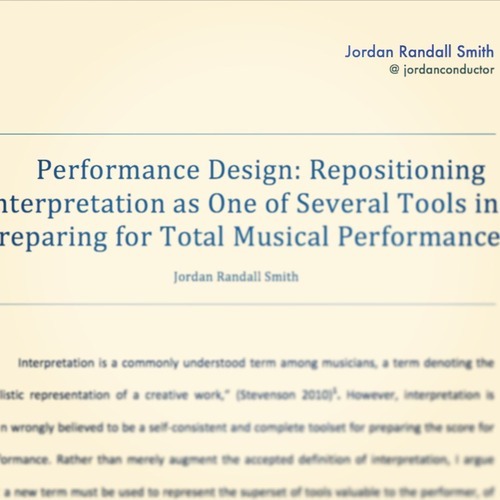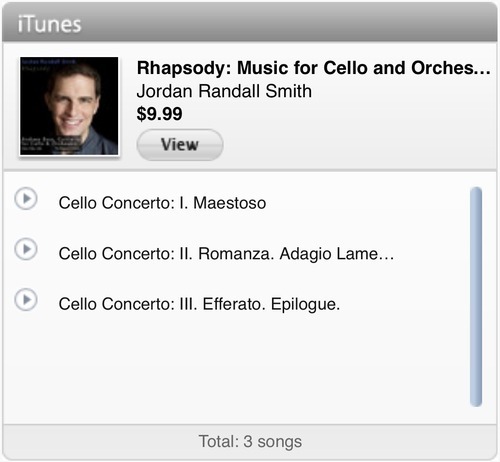via The Conductor's Notebook. View Original
Jordan Smith
Conductor, Percussionist, Composer, Music Educator, Writer. Recent Posts Include Asst. Conductor, Peabody Opera Theater. Music Director, Ars Nova Dallas. Cover Conductor, Baltimore Symphony Orchestra. Contributor, Sequenza21. http://jordanconductor.com
Sunday, October 11, 2015
Thursday, February 19, 2015
jordanconductor: I would not be a musician today if it weren’t...
I would not be a musician today if it weren’t for the overwhelming influence of my high school band director. This man was unique for the outstanding degree of musicianship he imparted to suburban 16-year-olds every day, yet he was more for being a veritable Titan of compassion. You have left your mark on the world. Rest in Peace, Gary Faust.
via The Conductor's Notebook. View Original
Wednesday, September 3, 2014
jordanconductor: Worthy of consideration: What’s Lost When the...
jordanconductor: Worthy of consideration:
What’s Lost When the Cloud Replaces CDs
newyorker.comRecently, while moving my CD collection to new shelving, I struggled with feelings of obsolescence and futility. Why bother with space-devouring, planet-harming plastic objects when so much music can …
via The Conductor's Notebook. View Original
Tuesday, September 2, 2014
Morning Insights from the Essay du Jour
Universities and Symphonies alike are constantly looking for an essay or document in the application process and the prompt I’m writing against this morning (source link below) emphasizes diversity.
It occurs to me that programming practices and repertoire studies in the US cannot help but present a barrier to repertoire diversity, as masterworks are emphasized year over year rather than exposure to international genres. That’s not to say that masterworks should not continue to be studied, but there must be a structure for ensuring that a variety of cultures are represented. More to come on this topic.
via The Conductor's Notebook. View Original
Thursday, May 15, 2014
Performance Design: Beyond Interpretation
Interpretation is a commonly understood term among musicians, a term denoting the “stylistic representation of a creative work." However, interpretation is often wrongly believed to be a self-consistent and complete toolset for preparing the score for performance. Rather than merely augment the accepted definition of interpretation, I propose that a new term must be used to represent the superset of tools valuable to the performer, of which the traditional methods of interpretation are a subset.
I argue for the use of the term Performance Design (PD) to indicate the totality of means and methods by which live concert performances are planned and prepared. Included in these means are tools from Neuroscience, Information Theory, and other audience-centric disciplines.
 |
| "Performance Desing: Repositioning Interpretation as One of Several Tools in Preparing for Total Musical Performance" by Jordan Randall Smith |
Saturday, May 10, 2014
iTunes Release
I’m excited to announce that we’re officially selling our Rhapsody project on iTunes now!
Please go on and rate us. This project was a fantastic way for Dmitry Volkov, our colleagues in the orchestra, and I to finish out a wonderful year in Baltimore. I’m so thrilled that I can close out my second year here by sharing Andrew Boss' fantastic music with all of you.

